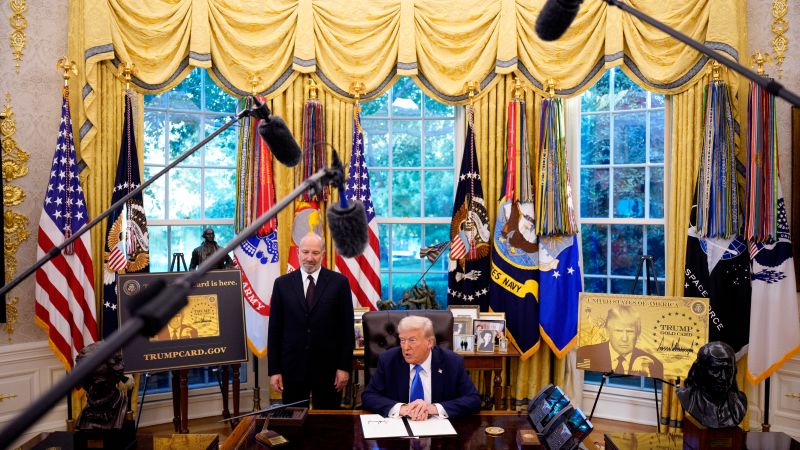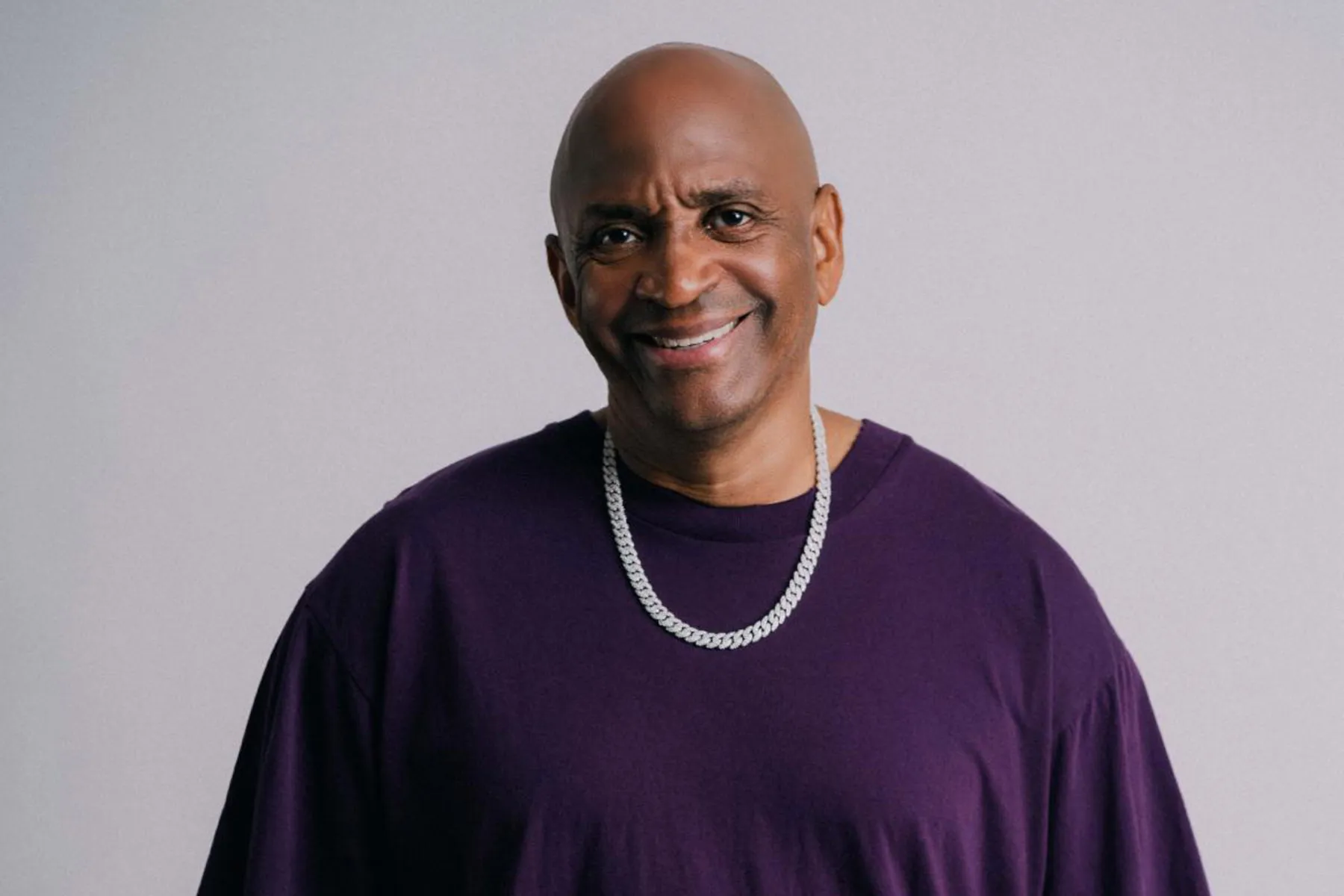
The Trump administration is making it significantly harder for people seeking to come to the United States legally and more difficult for current legal immigrants to stay, a squeeze that will have profound ripple effects across the economy and society.
In eight months, administration officials have rolled out a series of moves that have made it more challenging for international students and foreign workers to gain entry, including changes to visa rules — like adding a hefty price tag to H-1B visas — and increased vetting of their political views and social media activity. The administration has also largely halted the US refugee admissions program, with the narrow exception of White South Africans.
At the same time, officials have mounted obstacles for the tens of millions of immigrants in the country legally to remain without running afoul of rules, putting restrictions on immigration benefits, carrying out enforcement at immigration courts and offices, instituting a more difficult US citizenship test, and attempting to end birthright citizenship.
Taken together, the spate of measures highlights the administration’s intense focus on every part of the US immigration process — not just illegal immigration — with the aim of overhauling the system that has previously allowed millions of immigrants to live, work, and study in the country.
Immigration hardliners and allies of the president, led by White House deputy chief of staff Stephen Miller, argue that tightening the legal immigration system is a necessary move to eliminate fraud and abuse, and to ensure that Americans have access to good jobs.
Just before Trump returned to office, Steve Bannon, an influential figure in the MAGA movement, called for a “100% moratorium on ALL legal immigration.”
But Americans are more likely to view legal immigration as a “major benefit” than a year ago, according to new polling from the Associated Press and NORC Center for Public Affairs Research. And immigration attorneys and experts contend that the administration has weaponized the system against those who have followed the rules to be in the US, including those who have become naturalized citizens.
“During the first 90 days of the administration, there was really a targeted attack on enforcement, the border, going after that side of the house,” said Jeff Joseph, president of the American Immigration Lawyers Association. “Now, the winds are shifting.”
Trump keeps wavering on foreign workers
Trump has publicly grappled with how to manage foreign workers in the US, reflecting a divide within his own party and among his aides on the topic.
He’s flip flopped on immigration enforcement efforts affecting workers on farms and in other industries — at once, suggesting they stop, while also emboldening Immigration and Customs Enforcement to pursue arrests.
That came into sharp focus on the heels of an early September worksite raid at a Hyundai plant in Georgia that sparked a diplomatic clash with South Korea. After ICE detained hundreds of South Korean nationals, some of whom were legally present in the US, Trump stressed the ability of foreign companies to bring workers to the US.
“I don’t want to frighten off or disincentivize investment into America by outside Countries or Companies,” he wrote on Truth Social.
The business community was left to wonder again last weekend, following an announcement by the White House placing a hefty new fee on H-1B visas, which allows US employers, especially in tech, to employ foreign workers in “specialty occupations.”
Economists have argued the program allows US companies to maintain competitiveness and grow their business, creating more jobs in the US, while restrictionists contend the program pushes wages down and takes opportunities from US-born tech workers.
The rollout sparked alarm in corporate America. Trump signed an executive action Friday imposing a $100,00 application fee for H-1B visas, touting it as a guarantee to obtain “great workers.” But the following day White House press secretary Karoline Leavitt was forced to clarify the details amid confusion among companies over whether the new fee applied to current visa holders.
The H-1B announcement was paired with the unveiling of the so-called “gold card” for wealthy foreigners seeking to come to the US, flummoxing some of the president’s allies. The new pathway allows foreigners to pay $1 million to expedite their visa application or have companies pay $2 million to sponsor a foreign worker they want bring into the US.
“We’re going to only take extraordinary people at the very top,” Commerce Secretary Howard Lutnick said.
Yet Trump is creating expensive new pathways to the US even as existing avenues are becoming harder for immigrants to navigate.
“We’re making it impossible for them to do it the right way,” Joseph said.
Tightening the screws
Multiple federal agencies play a role in the US immigration system, often making it cumbersome for those who are trying to navigate it. That has increasingly become the case at US Citizenship and Immigration Services, the federal agency under the Department of Homeland Security that administers immigration benefits.
The agency has publicly shifted its tone, borrowing language usually associated with the department’s immigration enforcement arms. Actions by the agency have borne that out, according to former USCIS officials.
The administration has moved to dismiss asylum claims for potentially hundreds of thousands of migrants in the US, leaving them at risk of deportation; extended arresting authority to agents charged with issuing benefits; reinstated so-called “neighborhood checks” for people applying for US citizenship; and rolled out “anti-Americanism” vetting rules.
USCIS Director Joe Edlow has previously said that a confluence of factors would lead to a denial of benefits, but former USCIS officials and attorneys argue the ambiguity causes confusion.
“I don’t think that finding information of someone say, a single post saying I hate America or they’re supportive of certain individuals in Gaza is a standalone factor to find someone removable, inadmissible, or ineligible for a benefit,” Edlow said during an event at the Center for Immigration Studies, which advocates for legal immigration.
Immigration officers will be able to look at whether applicants have had “any involvement in anti-American or terrorist organizations,” or whether there is any “evidence of antisemitic activity,” said the policy update by USCIS.
Social media vetting, already introduced into immigration screening in June by the Trump administration, will be expanded to include searches for any “anti-American activity,” it said.
Cori Alonso-Yoder, director of the immigration clinic at the University of Maryland law school, told CNN that the changes to the US visa system, including increased vetting, “is generating a high level of anxiety and confusion.”
“I think for a long time running, people understood, ‘Okay, well, I can’t have an intention to remain in the United States. I have to show that I’m going to go back to my home country, that I’m coming for this very specific and articulated purpose that is allowed for from my visa,’” Alonso-Yoder added. “But now there’s new concerns about, ‘Well, what does it mean to have said something … that was anti-American, or what does it mean to have part of my eligibility criteria be my personal social media feed?’”
It’s not just immigrants in the US on a temporary basis who face higher hurdles, but also those seeking to become US citizens. Edlow argued for making the citizenship test harder, reinstating a controversial test implemented in Trump’s first administration.
Last month, USCIS also announced it was resuming “neighborhood checks,” which include testimonials from neighbors, employers and co-workers, for people applying to become US citizens. Previously, USCIS largely waived those investigations, relying instead on biometric checks and criminal history.
And in a separate denaturalization push, the administration has rescinded a Biden-era memo that put up guardrails on investigations of naturalized citizens to avoid a “chilling effect or barriers for lawful permanent residents seeking to naturalize.” In a one-page memo obtained by CNN, Immigration and Customs Enforcement acting Director Todd Lyons announced this month that the 2023 memo had been pulled.
The spate of moves reflects long-held views among immigration hardliners that the US immigration system as it stands is vulnerable to fraud and abuse. During the first Trump administration, officials similarly moved to tighten up legal immigration, with then acting USCIS Director Ken Cuccinelli revising the poem on the Statue of Liberty’s pedestal to suggest that only immigrants who can “stand on their own two feet” are welcome in the United States.
“There’s more urgency in the second term,” said Jessica Vaughan, director of policy studies at the Center for Immigration Studies. “It’s a theme of trying to restore integrity to our immigration system.”
But it also puts an agency charged with issuing benefits at the center of the administration’s immigration enforcement crackdown.
“People trying to do it the right way are at risk if they have anything in their record possibly eligible for removal proceedings,” a former senior USCIS official told CNN. “The ship is being steered in a far more enforcement minded direction.”
Targeting student visas
Using an obscure law, administration officials have targeted thousands of international students, particularly those who were active in protests against the war in Gaza, accusing them of antisemitism and of supporting terrorism.
The State Department revoked more than 6,000 student visas this year, a State department official said last month.
Approximately 4,000 of the 6,000 visas were revoked because the visa holders “broke the law,” and approximately 200 to 300 of those visas were yanked for alleged terrorism under part of the Immigration and Nationality Act that says that foreign nationals may be inadmissible to the US “due to terrorist related activities,” according to the official.
The total number of visas revoked is nearly four times many as during the same time period last year.
Helming the charge is Secretary of State Marco Rubio, who has become a vocal figure in the Trump administration’s immigration crackdown. Following Charlie Kirk’s death this month, Rubio threatened to deny visas to people “celebrating” the murder.
“If you’re a foreigner and you’re out there celebrating the assassination of someone who was speaking somewhere, I mean, we don’t want you in the country,” he said. “Why would we want to give a visa to someone who think it’s good that someone was murdered in the public square? That’s just common sense to me.”
The top US diplomat said at the time that he did not know if any visas had been revoked yet but said he expected that some would be.
The Department of Homeland Security also proposed a federal regulation that would limit the amount of time foreign students are allowed to remain the US, arguing that students have “taken advantage of U.S. generosity.”
Earlier this year, the Trump administration enacted a travel ban which targeted 12 countries and placed partial restrictions on seven others, further limiting international students’ ability to study in the US.
The Trump administration has so far also issued significantly fewer student visas — nearly 13,000 less from February to May 2025 compared to the same period last year. Similarly, there has been a drop in issuances for J-1 visas, which is an “exchange visitor” visa that is also used for educational purposes, including by professors.
“When it comes to the typical way that global talent has come to America, which is through universities and US companies and hospitals and research institutions, this administration is saying we’re going to roll up the welcome mat,” said Doug Rand, a former senior adviser at USCIS during the Biden administration.



